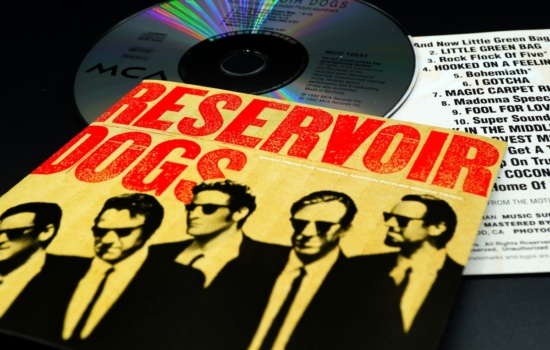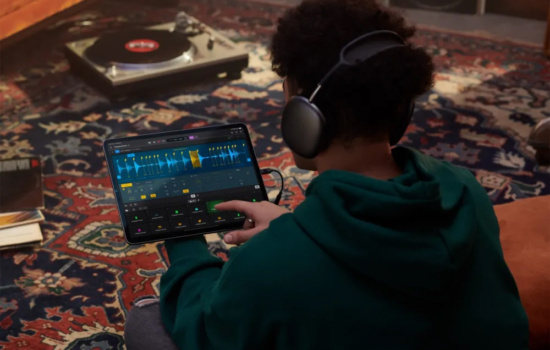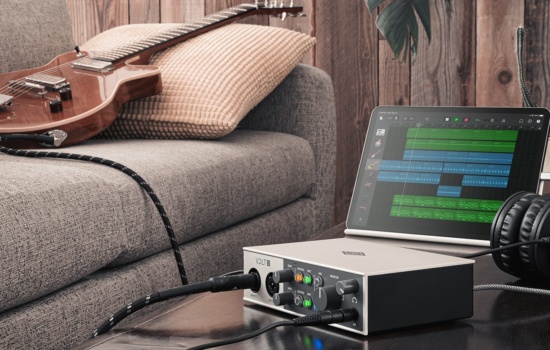Orchestrator
Career Overview
Orchestrators transpose music and write scores for orchestra based off a composer’s initial draft or sketch. They work with arrangers, artists, producers, and performers to prepare and finish music parts to be played by an orchestra or ensemble, often as accompaniment for a soloist, choir, musical, or for film, TV, advertising, and visual media productions.
Orchestrators often work alone, so discipline in time management is important to meet deadlines. They also need strong business communications, networking and collaboration abilities, to maintain a steady stream of work.
Alternate Titles
None
Avg. Salary
$62,3771
Salary Range
$13K-$122K1

How To Become an Orchestrator
People also ask
Career Description
An Orchestrator writes scores and parts for orchestra based off a composer’s drafts (or sketches) for film, TV, video games, orchestras, bands, or individual performers. They also transpose music originally written for one voice type or instrument to be performed by another voice type or instrument.
Their primary goal is to fulfill the artistic vision of the composer or arranger, and to assign and finish all the parts to be played by multiple instruments.
Jeremy Levy is an orchestrator/arranger/composer whose work can be heard on TV shows Empire and Revenge, films Crimson Peak and Minions, as well as in dozens of other movies, TV programs and video games.
He says, “My day to day duties are orchestrating cues [an individual piece of music within a film] and managing a small team of assistants. I have a couple guys that clean up MIDI files from the composer we’re working with, and then they prepare sketches in Finale for me. My experience as a composer informs all of my work.
“It allows me to understand what the composer’s intent is, and how best to facilitate it. As an arranger, it gives me the skills to quickly flesh out harmony where needed without thinking twice about it.”
In addition to the previously mentioned positions, orchestrators also work with composers’ assistants, music editors, mix engineers, copyists, and videogame composers.
What is the meaning of Orchestrator?
Dictionary.com defines orchestrate as “to compose or arrange (music) for an orchestra,” so that would mean that an orchestrator is one who composes or arranges music for an orchestra, or perhaps a ballet or traditional stage musical. They are the ones who use an orchestra of various instruments to bring to life the notes, songs, scores and ideas that some producer, musician, storyteller or someone else came up with.
What is the difference between an Orchestrator and Conductor?
As is mentioned above, an Orchestrator is the one who translates whatever another creative has come up with, be it simple notes or a fully fleshed out idea from a Composer or Producer, into something that an orchestra can play.
A Conductor, on the other hand, is someone who conducts, or leads, the orchestra. They are the people you see standing in front of an orchestra at the symphony, the ballet or perhaps a Broadway musical. They ensure in the moment that the Musicians are playing as well as they possibly can and that they’re all harmonizing well with one another. No matter how much a group of talents practice, it’s still great to have a Conductor wrangling it all and shaping the sounds so the audience hears everything perfectly.
Think of a Conductor’s job as something like the Director of a movie, but for music. The Actors can rehearse a scene a million times, but they still need an outside voice and a separate pair of eyes in order to tell them what they’re missing and to hone their performances.
What is the role of an Orchestrator?
According to Berklee College of Music, perhaps the most prestigious music school in the world, an Orchestrator “takes a Composer’s musical sketch and turns it into a score for orchestra, ensemble, or choral group, assigning the instruments and voices according to the composer’s intentions.”
Essentially, they’re in charge of turning ideas and musings into a proper piece of music. They must be incredibly creative, intelligent and they have to know all the instruments that will be used in the piece inside and out. It’s a very difficult job, and few Musicians, even those who are great at what they do, have what it takes to become Orchestrators.
Salary
The average annual salary for orchestrators is approximately $62,400. The salary range for orchestrators runs from $13,000 to $175,000.
Going rates for orchestrators will vary based on the type of production, its budget, and whether or not it’s a union or non-union job. Orchestrators are paid in two ways, with the first being “an agreed upon package deal for the entire project. The lead orchestrator gets the paycheck and has to pay anyone else working on the project,” Levy says.
The second is “by the page. A page is four bars of music. The rate goes up or down depending on how many staves are in the score. Another factor to set the page rate is whether or not it is a union contract. If on contract, the upfront rate is a little lower as there are health benefits paid by the employer, as well as secondary market residuals. Off contract will be higher since there are no residuals.”
As with any professional career, those at the very top earn significantly more money than the average. There are no “big breaks,” rather a series of smaller opportunities strategically leveraged over a long time. Being good at what you do is a start, but not all you will need to earn a good living doing something you love. You also need persistence, hard work, and even some luck. Getting connected with the right people who know your work is key.
Hey, what do you think about trying our new Music Career HelperMusic Career Helper really quick? It’s totally free and could help get your career moving fast! Give it a try. It’s totally free and you have nothing to lose.
Career Outlook
For those with the right skills and connections there will always be a steady stream of work. Winning awards and working on bigger and more prominent projects will open the door to collaborations with high profile composers, orchestras and studios.
There is a strong need for capable orchestrators in film and TV, as well as in stage and concert productions around the world. Overall, the field is expected to grow in line with the expansion of the music business and entertainment industries. Over the last decade, we’ve seen annual growth in these industries averaging 4 to 15% annually, depending on which subsector and source you look at.
For example, according to statistics site Zippia: “from 2020 to 2021, the revenue of the U.S. recorded music industry increased by 22.9% (from $12.2 billion in revenue in 2020 to $15 billion in 2021,” while “the global music industry’s annual revenue increased by 18.5% from 2020 to 2021 ($21.9 billion in 2020 to $25.9 billion in 2021.”
We’ve seen this as a long-term trend. The appetite for entertainment and music is growing with the population. We can confidently say that it will continue at some pace, and that there will be a continuing growth in industry demand for music orchestrators, arrangers, composers, performers, and producers.
So, what’s it like to work as an orchestrator?
Although orchestrators work as part of a team with other composers and arrangers, they spend a good deal of time working on their own. Their work schedule is dependent on the project and its deadline, but Levy says, “I try to work normal-ish office hours. I have a studio in my condo, so that provides a bit of flexibility.
“My usual work schedule is 7:30 am to 6:00 pm. I’ll keep working after dinner if I’m on a time crunch. Otherwise, I try to spend time with my wife after dinner. Weekends are often needed to work during crunch time. A lot of times, recording sessions are on Mondays, so I’ll need to work Sunday if that’s the case.
I collaborate most often with conductor/orchestrator Tim Davies. The two of us have split orchestration duties on most projects over the past five years. Our process usually involves fully orchestrating a cue and then having the other look at the finished score to see if anything can be improved. You’d be amazed at what another person might find in your scores!”
What does an orchestrator do?
Orchestrators create original music scores for orchestras, choirs, and ensembles, usually transposed from existing works or arrangements. They also conduct ensembles and sometimes perform works. They work in collaboration with composers, arrangers, songwriters, instrumentalists, singers, producers, and engineers to bring music to life on the concert stage or in the recording studio.
Orchestrators assign musical instruments in an orchestra to play specific parts of a piece of music, dealing with harmonic, melodic, and rhythmic elements. Sometimes orchestrators work on music for film and television, videogames, advertising, and other visual media. They work closely with a variety of music industry players on a wide range of creative projects, including for musical theater productions, to bring finished works to life.
Career Path
Most people start off as assistants before being hired as full-on orchestrators. Those just getting started in the industry often must work other part-time jobs or cobble together several projects at a time to make a living.
Advancement would then come in terms of getting hired as an orchestrator for more prestigious projects with higher budgets, or by becoming the regular orchestrator for a television show or some other project that would provide a steady source of income.
“That is the tricky part,” Levy says of landing a first job. “Finding a way into the industry is hard. There are some good organizations in LA” for networking opportunities. “Otherwise, if you went to college, hopefully, there are alumni working in the business. I met with every Miami alum I could find when I moved here. It was very helpful with introductions.”
- “Start your own writing projects! I started a big band to feature my writing when I first came to town. You’ll meet a lot of people, and it shows you have the gumption to follow through on work.”
- “Also, get on the phone and call people you want to meet up with! You don’t usually get turned down unless it’s a scheduling issue. I’ve found people in the industry to be incredibly open to meeting up for advice.”
Getting the right training in music also means learning the business skills needed to succeed. Most schools have courses and resources for learning job-search skills and etiquette. It might be helpful to take some music business classes or read books about how the industry works.
Getting first-hand experience by completing an internship or working as an assistant to someone more accomplished is also a good way to break in. As with many things, getting started is the hardest part. Like riding a bicycle up hill, you must at first press the pedals hard, but once you are moving, momentum should make it easier to go forward.
While getting a good start is important, continued growth in your career will become a priority. This might mean winning some awards (like a GRAMMY®) or working with more well-known composers or organizations.
While it could take some years for your phone to start ringing with continuous opportunities, the right mix of skills and hustle will eventually get you to where you want to go.
Experience & Skills
Of the experience and skills necessary to become a successful orchestrator, Levy says, “I would classify this under two areas. [You must have] in-depth knowledge of the orchestra and all the instruments, as well as deep harmonic knowledge. Being able to look at a score and find issues just by sight is incredibly helpful.
“Being able to quickly work out solutions is even more helpful. [Also of importance is] being incredibly versatile in all aspects of music production software. This includes notation and sequencing. You will need to do everything at some point in your career. If you don’t know how to use a piece of software for a job, learn it and don’t let anyone else know!”
“You need to be able to deal with a bit of solitude. I am most often at my home studio working by myself,” Levy says, and indeed most orchestrators do spend most of their time working alone.
He adds, “However, you need to communicate well with others. Unless you’re orchestrating your own score, you will be working with a composer, so you need to learn how to manage his or her stresses and responsibilities with your own. Everyone is on a time crunch, so it is important to respect that and stay organized. Time management is one of the most important aspects of a successful orchestrator.”
A list of professional skills required for orchestrators might include reading and writing music notation, notation software, music transcription, solid knowledge of instruments, conducting, plus MIDI orchestration skills such as using sample libraries, synthesizer programming, creating orchestral mock-ups, and troubleshooting hardware and software.
What skills should I have for orchestration?
Orchestrators need a complete grasp of all aspects of music theory and notation, plus the knowledge of how to write for musical instruments in use today. This usually requires specialized training, and while a music degree from a reputable school is not a requirement, it typically makes a good calling card since it shows that one has acquired the prerequisite knowledge and skills.
Orchestrators must have knowledge of historical and contemporary musical styles and forms, the famous composers and songwriters, plus business skills and knowledge of music publishing, music technology (such as MIDI), and communications. They must be flexible enough to collaborate with other artists and have solid time management skills to be able to complete large projects under strict deadlines. They should also be able to play an instrument well, and it’s helpful to be able to play piano.
Education & Training
A college degree in music, composition or performance can help an aspiring orchestrator learn the necessary musical skills they need to understand the mechanics of music. Levy says, “I have a Master’s in Jazz Composition from the University of Miami. It was incredibly helpful in teaching me the wide range of skills needed to find a career in music.
“At school, I also learned how to be a recording and mixing engineer–two very helpful additional skills. Besides formal education, in-depth knowledge of orchestral scores is very helpful. Being familiar with a wide range of musical styles helps quite a bit, too.”
While there’s a lot one can learn on their own, there are music degrees available with a focus on writing, including composing, arranging, and creating orchestrations. Most aspiring orchestrators attend a music program to prepare themselves with an arsenal of skills, learn the music business aspects, and build a professional network that will allow them to transition to the professional world of music.
Is college necessary to become an orchestrator?
A college degree is not a requirement for becoming an orchestrator, but there are many music schools and programs that are beneficial to anyone wishing to break into this career. Learning the fundamentals of music theory and notation, understanding various musical styles, mastering the technology tools used in music composition and production, and learning to play an instrument well are a few reasons why attending a music college or conservatory would be helpful.
Networking and building a portfolio along with job search skills can also be accomplished during college years. Access to specialized training can speed up the learning process in becoming proficient as a musician and orchestrator. These are some of the main reasons people choose to attend music college.
Additional Resources
Levy recommends the Society of Composers and Lyricists (SCL), the American Society of Music Arrangers & Composers (ASMAC) and the Academy of Scoring Arts. These groups are especially relevant to those looking to get into orchestration for film, TV and video games.
What is the difference between an orchestrator and an arranger?
Arrangers create a specific instrumental setting and add original material to an existing composition, often changing the key, style, feel, tempo, and instrumentation to suit. An orchestrator primarily takes the work of the arranger or composer and fleshes it out for an ensemble, assigning specific parts to the different instruments.
While many arrangers are also orchestrators, and there is some overlap between the two, they are not the same thing. Orchestrators typically fulfill the artistic vision of the arranger and composer by writing for instrumental groups, such as strings, brass, woodwinds, percussion, or the choir, while arrangers may have more artistic freedom to reinvent musical pieces into new versions.
This video explains some very useful tips for orchestrators and mentions some excellent books on orchestration.
Using Chorale Writing (or 4-Part Writing) as the foundation for orchestrating
A guide to what gear you really for getting started with orchestral mockups
How to Write EPIC Cinematic Strings Starting from 4-Part Chords
FAQ
What is the single biggest suggestion you would give to someone wanting to get into this career?
“Be content with orchestrating, and don’t look at it as a way to get into writing for film. It doesn’t really work that way. You get hired for being able to deliver a finished score without mistakes in a very short turnaround time. Don’t be a diva; the Composer is always right.” He jokes, “Unless you can convince them of a way to do it better.”
What’s the #1 mistake people make when trying to get into this career?
“They don’t take it seriously. Orchestrating is a full-time job. It’s not something you can do part-time in between other gigs. Make it your priority.
“My first couple of years involved multiple all-nighters and included every possible job needed in the work chain. It also includes some financial investment to get your rig up to speed. It’s helpful to have a large format laser printer to deal with big scores, as well. These things don’t come cheap!”
What is the question people should ask about this career but rarely do?
“What does an Orchestrator actually do? Most people have preconceived notions of the job that are all off. Either they think we secretly wrote the whole score, or we deal with handwritten piano sketches.
“The truth is that we are the musical middlemen that make it all happen. We are able to turn a Cubase file into a real orchestral score. We are able to orchestrate sixty minutes of orchestra in two weeks. We are able to fix any potential issues that may arise. We know our role in the post-production workflow and maximize our skill set.”
What is one thing I should have asked which I didn’t?
“How long did it take you to make a living off of just orchestrating? It took me four to five years to be working enough that I no longer needed to play trombone professionally for supplemental income. I used to tour with the Brian Setzer Orchestra, but I had to give it up after a while.”
If you could describe in one word what makes you successful, what would it be?
“Flexibility.”
Extra Credit: The Beatles or Rolling Stones?
“Beatles.”
Sources

Jeremy Levy
Jeremy Levy is a Los Angeles-based Orchestrator, Arranger, and Composer.
As an Orchestrator, his recent film, TV, and video game projects have included How to Be Single, Ant-Man, Crimson Peak, Minions, Revenge, Empire, The Book of Life, Batman: Arkham Knight, A Walk Among the Tombstones, Smurfs 2, Jack Reacher, Tower Heist, The Event, No Ordinary Family, Battlestar Galactica, Infamous 2, and God of War 3.
He has also arranged music and provided music preparation services on The Tonight Show with Jay Leno and American Idol. He is the co-leader of the Budman/Levy Orchestra, which features many of LA’s top musicians.
His work can be purchased through FJH Music. To learn more about Levy, check out this Finale Spotlight on his career.
References
- 1Multiple. "Music Orchestrator Salary in Santa Monica, CA". ZipRecruiter. published: Aug 21, 2023. retrieved on: Aug 28, 2023






















